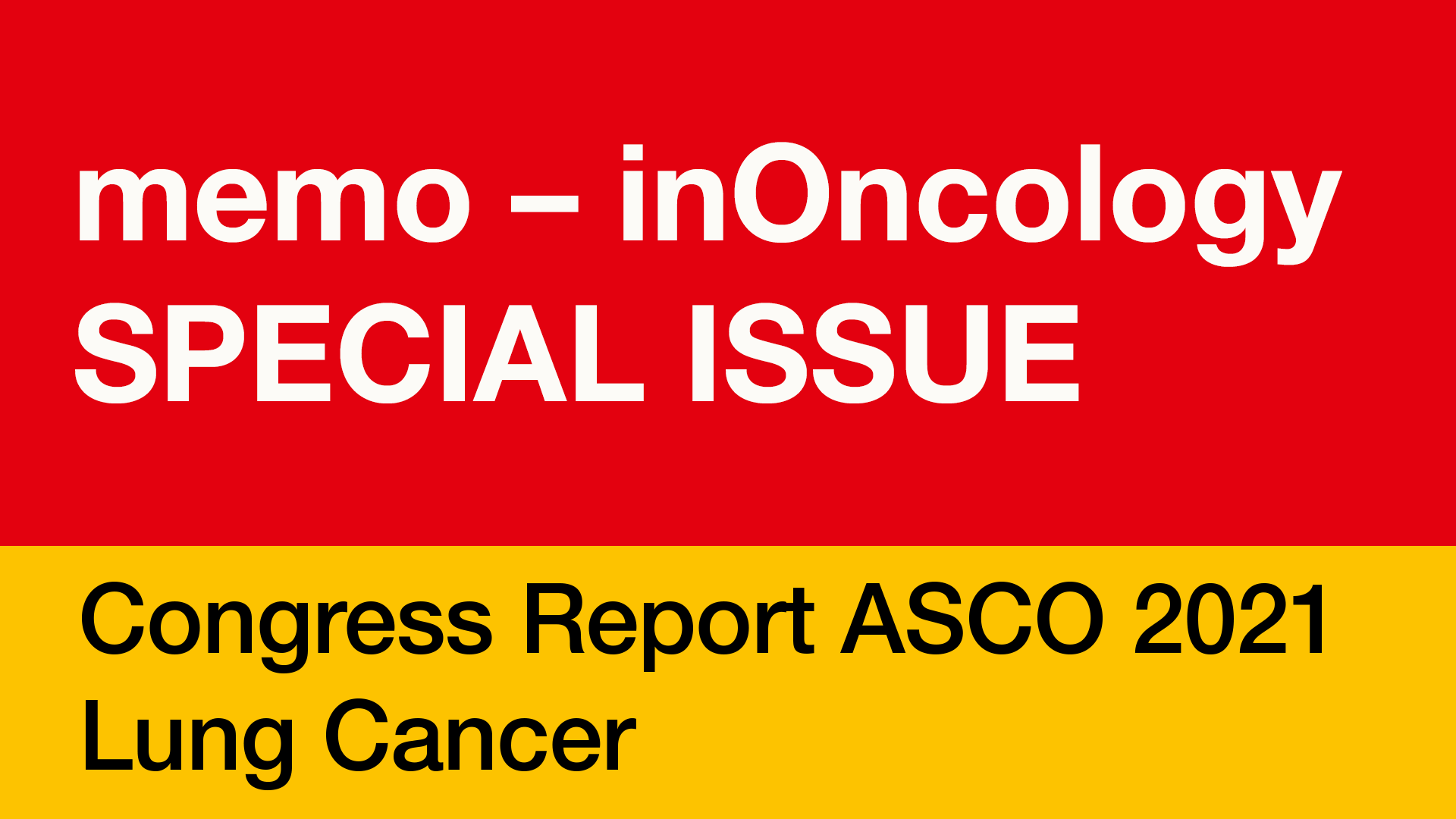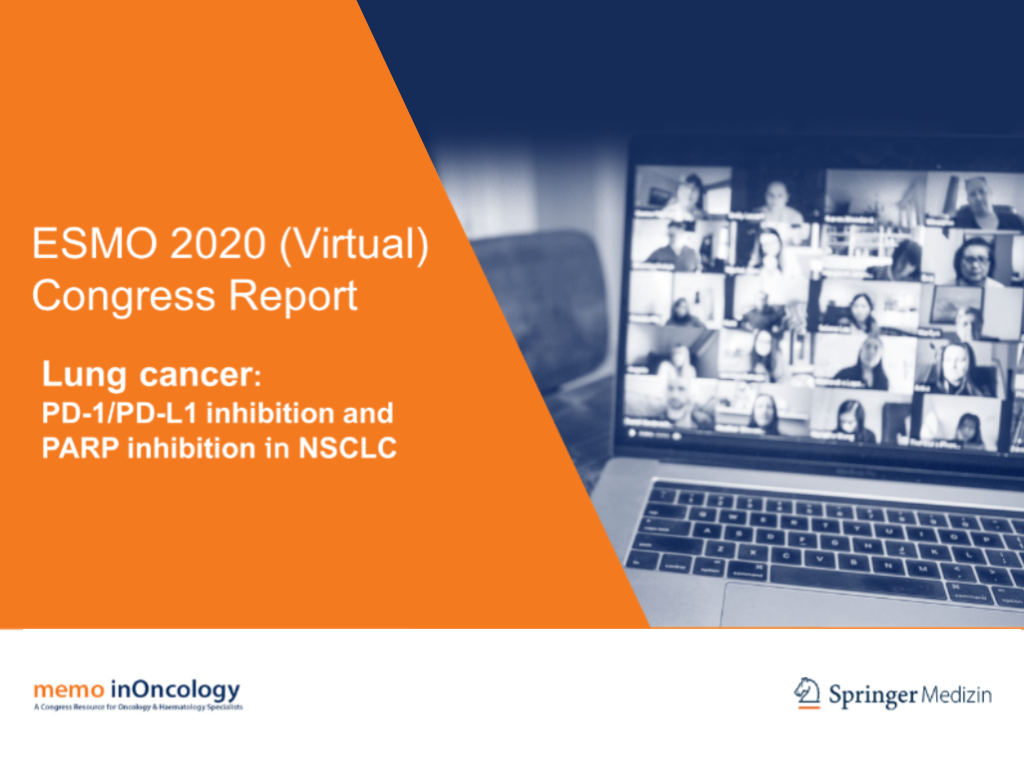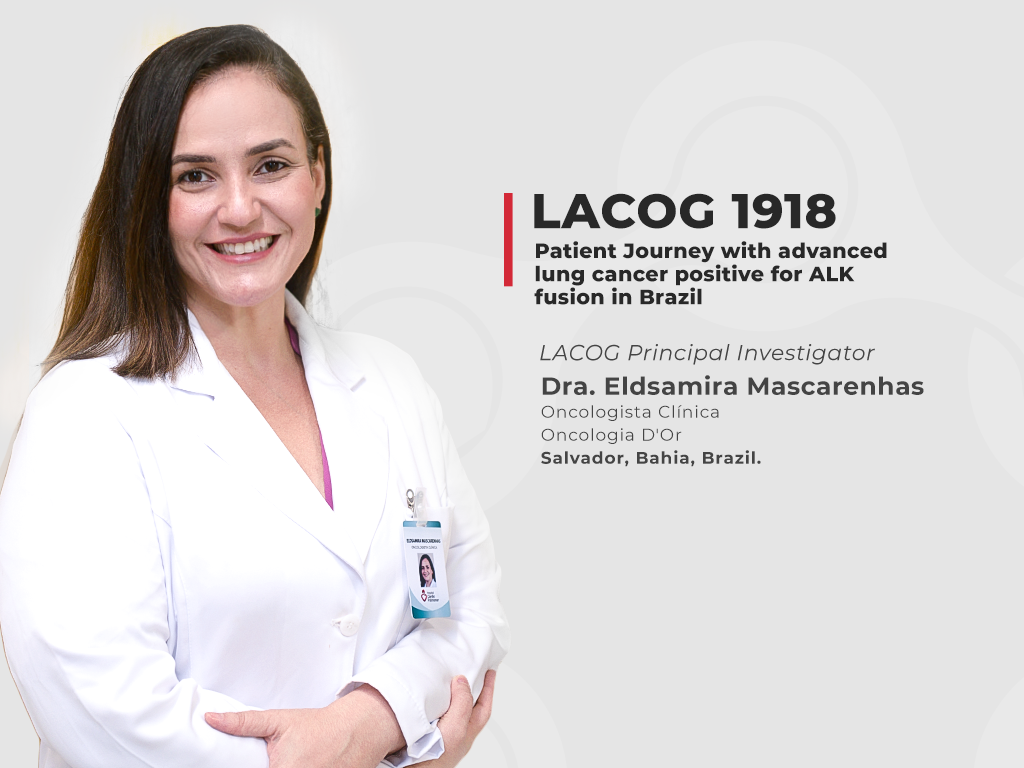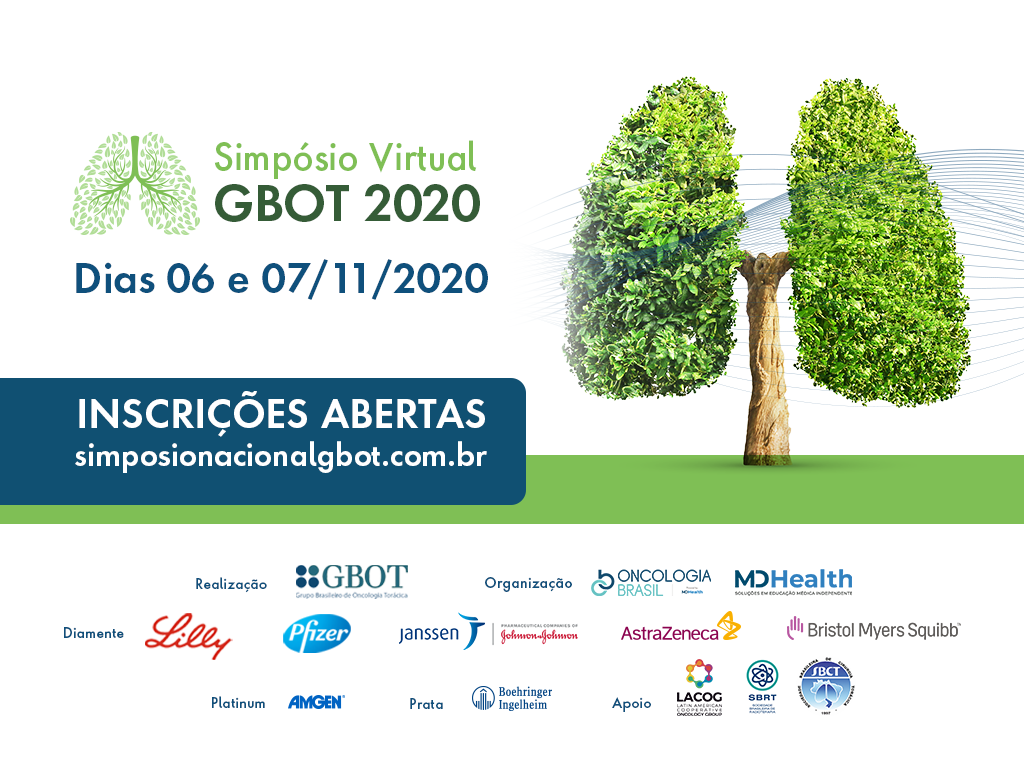Memo inOncology SPECIAL ISSUE congress report ASCO 2021- Lung Cancer is now available!
This report highlights immunotherapeutic standards in early-stage lung cancer. Moreover, strategies against sensitizing and resistance-mediating EGFR mutations as well as current perspectives regarding KRAS, MET, ROS1 and HER2 mutations are covered. Furthermore, immunotherapies and immunosupportive mechansims via e.g. anti-angiogenesis are addressed. Last but not least, this special issue includes a section about new vistas for patients with SCLC and expert interviews regarding resistance as one of the biggest challenges with targeted therapies. As an additional feature, you will find expert video interviews with Martin Reck, Luis Paz-Ares, David T. Cooke, Donald Harvey, and Ferdinandos Skoulidis on different conference highlights on our website. Download the full report
Memo inOncology SPECIAL ISSUE congress report ESMO 2020 is now available!
This report highlights immune checkpoint inhibition with respect to chemotherapy-free regimens and new PD-1 inhibitors. Moreover, different types of therapy for early-stage lung cancer and determinants of treatment success in small-cell lung cancer are covered. Furthermore, innovative and established approaches for patients with uncommon mutations as well as EGFR-targeted options, possibly changing the treatment landscape, are addressed. Last but not least, this special issue includes expert interviews regarding the interactions between radiotherapy and the immune system and the implementation of immunotherapy-based standards for malignant mesothelioma. Additionally, on the memo website you will find expert video interviews with Paul Baas, Tony Mok, Maarten Lambrecht and Byoung Chul Cho on different conference highlights. The memo inOncology Special Issue report is produced by Springer, as a supplement of memo (the Magazine of European Medical Oncology) and sponsored by Boehringer Ingelheim and BeiGene with an unrestricted educational grant. For more information on the memo inOncology Special Issue series, and for free access to all previous editions, visit the memo-inOncology website. Download the ASCO 2020 Lung Cancer report
The challenges of lung cancer patient’s journey: from diagnosis to treatment
The delay between diagnosis and the beginning of a disease treatment is a reality for many patients, oncological or not. Such delay has a significant impact on the quality of life and, in many cases, on overall survival of patients. Seeking to describe the journey of patients with ALK-positive non-small cell lung cancer, Dr. Eldsamira Mascarenhas, a clinical oncologist at Oncologia D'Or Salvador, along with LACOG, is coordinating the observational study: The journey of patients with ALK-positive advanced lung cancer in Brazil (LACOG 1918). “We wish to understand what patients with ALK-positive advanced lung cancer face from the moment they receive the diagnosis until the beginning of treatment. With this information, we will be able to act more effectively and therefore provide earlier diagnosis and therapy”, she explains. According to Dr. Mascarenhas, studies like this are important because there has been a significant increase in cancer incidence over the years. “Developing a clinical research will answer important questions we have about this population.” Dr. Mascarenhas believes that clinical research transforms society around the world. However, Brazil still does not play a prominent role in this scenario since we have had little participation in the development of studies. For that reason, the work
The GBOT holds a virtual symposium to discuss the latest developments in the diagnosis and treatment of lung cancer
The Brazilian Thoracic Oncology Group (GBOT) held its 2020 Virtual Symposium on November 6th and 7th. For the first time, the event took place entirely online. “Due to the unusual format of the event, it was a challenge for the group and the board to develop a program that would be captivating, especially considering the amount of online lectures and symposia we have had over the last few months. However, I think that this format made the event more interactive because it enabled the participants to discuss topics and share their own experiences, rather than just listen to the lectures,” explains Dr. Ana Gelatti, the GBOT vice president. The aim of the symposium is to discuss the main developments in lung cancer diagnosis and treatment, as well as the latest evidences on tumor markers, new drugs and therapies. Around 400 pulmonologists, radio-oncologists, thoracic surgeons, clinical oncologists, and other specialists participated in the event. Dr. Gellati especially highlights the Sessions of Controversies regarding the management of patients with lung cancer. Osimertinib in adjuvant treatment, the relationship of two immunotherapies in first-line lung cancer treatment and the assessment of patient N2 and the best approach in their case were some of the topics discussed
Save the Date for GBOT’s 2020 Online Symposium
The Brazilian Group for Thoracic Oncology (GBOT) is holding the “GBOT 2020 Online Symposium”, on November 6th and 7th, 2020 – an entirely online format for the first time.This well-established event is designed as an opportunity to discuss the main advances in the diagnosis and treatment of lung cancer, as well as the latest evidence on tumor markers and the development of new drugs and treatments. If you are a clinical oncologist, thoracic and oncology surgeon, radiotherapist, pulmonologist, pathologist, or other professional working in thoracic oncology, sign up and participate! Sign up here: http://www.simposionacionalgbot.com.br/
Non-small cell lung cancer is the subject of an important study for Brazil
The same way it happens in developed countries, non-small cell lung cancer (NSCLC) is generally diagnosed in its advanced stages and has poor survival rates in Brazil. Overall, approximately 70% of patients present with locally advanced or metastatic disease (stages III and IV, respectively) at diagnosis.1 In order to collect data on clinical characteristics, treatment patterns and outcomes of patients with stage III NSCLC in Brazil, Dr. Vladmir Cláudio Cordeiro de Lima started the observational study Retrospective epidemiological study of Locally Advanced Non-Small Cell Lung Cancer (LACOG 0118 – RELANCE). He has worked as the principal investigator of the study ever since. Dr. Cordeiro de Lima is a clinical oncologist at the Department of Clinical Oncology at the AC Camargo Cancer Center. He also works as a permanent advisor of the Postgraduate Course in Sciences focused on the Oncology area at the Antônio Prudente Foundation, and as an investigator at the Translational Immuno-oncology Laboratory (CIPE) at the Antônio Prudente Foundation. The study aims to describe the outcomes of 400 patients with locally advanced NSCLC (stage III). The study is supported by LACOG and, according to Dr. Cordeiro de Lima, this support is extremely important because cooperative groups help to bring together and








